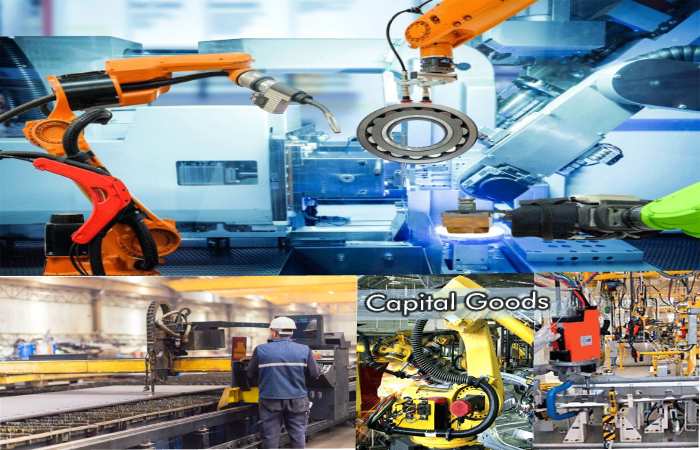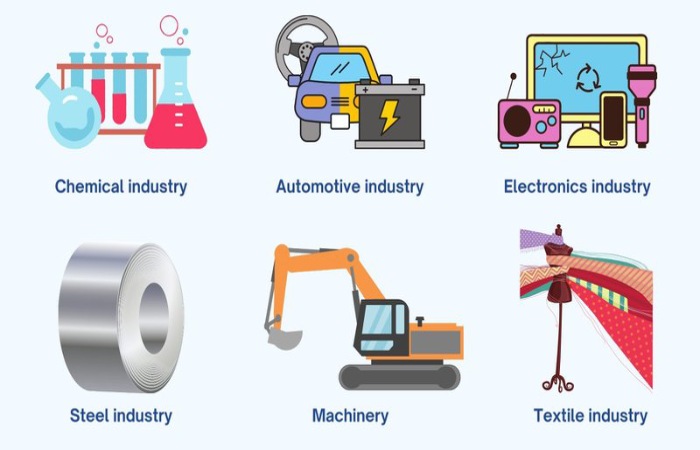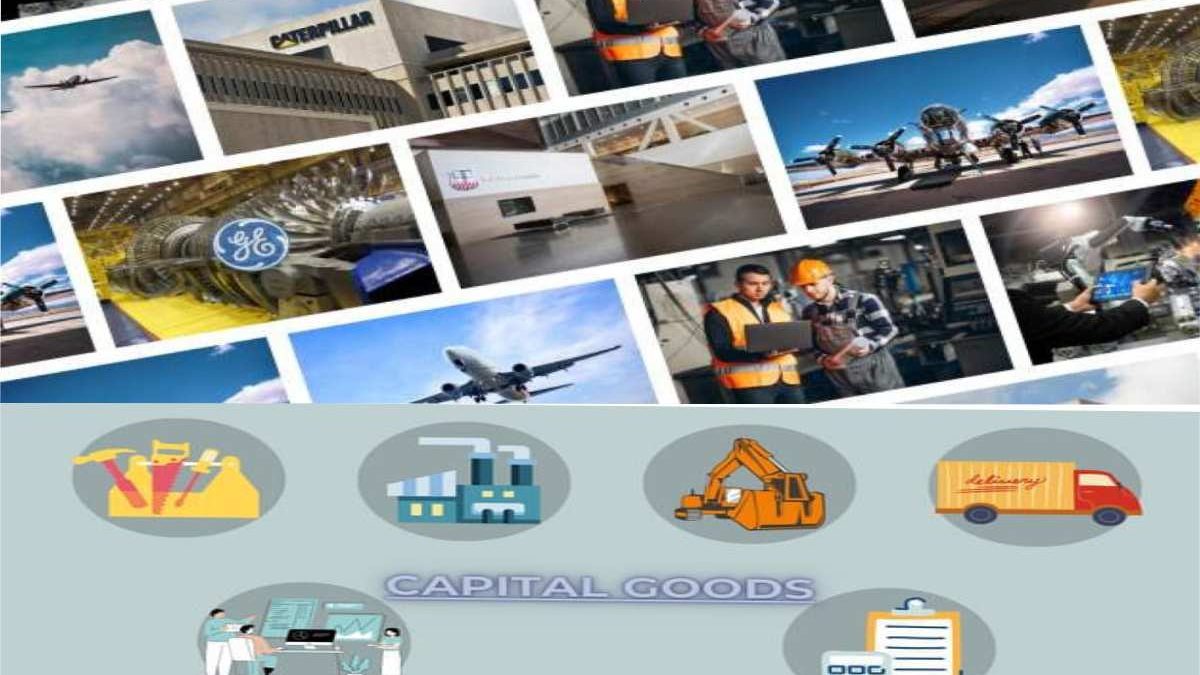Table of Contents
Introduction
If You want to know what companies are in the capital goods field, then you are at the right place. Capital goods companies are the ones that make the machinery and equipment that do use in the production of other goods and services. Whether you are interested in working for the manufacturer of aircraft engines or the latest robotic manufacturing equipment, there are many crazy offers to explore in the capital goods field.
However, Capital goods are a crucial part of any economy. They make everyday life easy way, more comfortable and more productive. This play such a key role in our daily life. Unsurprisingly, companies in this field are among the most sought exclusive worldwide.
What is the Capital Goods Field?

The capital goods field is the field which provides a product of goods and services to others to build a business. Capital goods manufacture physical items to create a product or service that people will use later. They are different from consumer goods, purchased items to satisfy a customer’s needs directly. Examples of capital goods include batteries, construction equipment, and machinery. Firms that create capital goods belong to the capital or industrial goods sector.
Capital goods are goods used to make other goods, and consumers do not purchase them directly because they make other goods. There are companies that facus total on manufacturing capital goods. These companies produce weapons, chemicals, engine and more. The capital goods field includes simple electronic equipment to complex machines and Weapons.
Some List of Companies In the Capital Goods Field

There are so many companies producing capital goods. Capital goods are products that are built to last and can be used over and over again. They are essential to all economies, and companies in this field are some of the largest in the world. Companies are interested in investing a significant amount in this field. Below you can see some best companies list.
General Electric
Company size: 168,000
Headquarters Location: Boston, MA
General Electric is an American-based company operating in various sectors, including aviation, healthcare, power generation, and renewable energy. The company was founded in 1892 by Thomas Edison in New York City, and its current headquarter is in Boston, Massachusetts, U.S. As of 2022, General Electric is now rank on 48th among Fortune 500 companies by gross revenue.
Boeing

Company size: 1,42,000
Headquarters Location: Arlington, VA
Boeing is fast growing aerospace company. They produce airlines, spacecraft, and missile Weapons. They have goods for businesses in more than 150+ countries and are well-known for their promise of innovation and sustainability.
In addition to its planes, Boeing produces defence systems such as missiles and satellites. The company also manufactures aircraft engines and parts for other aviation companies. Boeing employs more than 120,000 people worldwide and generated sales of more than $63 billion in fiscal 2016.”
3M
Company size: 95,000
Headquarters Location: Saint Paul, MN
Of equipment. Although 3M remain often recognized for producing consumer goods, the company manufactures approximately 60,000 different types of products, including window films, medical products, electronics and more, which fall under the domain of consumer goods. Additionally, in 2018, they voted the 20th best workplace in manufacturing and production. They offer flexible work hours, mentorship programs, and excellent benefits.
Honeywell International
Company size: 110,000
Headquarters Location: Charlotte, North Carolina
A Fortune 100 company, Honeywell International manufactures products for the chemical, automotive and aerospace industries. Specifically, they produce chemicals, engineering materials, plastics and more. Like many other capital goods companies, job opportunities include finance, customer experience, sales, and supply chain. With an emphasis on social responsibility, they also encourage employee volunteerism.
Siemens
Company size: 303,000
Headquarters: Munich, Germany
Siemens is a technology company specializing in infrastructure, transportation and healthcare goods. Unlike most of the companies above, Siemens focuses more on abstract interests – like artificial intelligence, cybersecurity and intelligent buildings – claiming that they “design and implement more than 7,600 inventions” each year. They provide global career opportunities for job seekers who hope to make a difference.
What Comes Under the Capital Goods Industry

Capital goods are physical assets that a company uses in the production process to make products and services that consumers later use. Capital assets are also fixed assets, typically long-term investments that stay with the business for many years. Examples of capital goods include:
- Manufacturing Equipment
- Vehicles
- Buildings And Land
- Computers
- Industrial Machinery and also
- Other Large-Scale Items That Are Used To Produce Goods And Services
Capital Goods Jobs and Salary
Capital goods jobs offer higher wages and benefits than many other jobs. Field of Capital Goods workers classically earn more than workers in other industries, but they also enjoy access to better retirement plans and health care benefits. To qualify for a capital goods job, you’ll likely want a degree in engineering or a related field. However, many companies are now looking for people with business experience.
Firstly, The field of capital equipment is vast and spans many industries, making it an attractive area for a job seeker like you. Even better, the field offers a variety of roles, including customer service, marketing, and engineering, to name a few. These roles range from entry-level positions to higher-level positions.
Since the capital equipment field includes many industries, and most companies have in-house marketing, legal, IT, and many more departments, there are many jobs available in the capital equipment field.
In Capital goods Field, so many companies give their employees good salaries and other benefits. Like
- Medical insurance
- Paid time off days
- Work flexibility
- Dental Insurance
- Signing bonus
- Disability insurance and also
- Vision insurance
Capital Goods Sector Companies
The Capital Goods Business Sector are a cornerstone of the modern economy. These sectors are responsible for manufacturing and delivering the goods that keep our industries running, from machinery to equipment and electronics.
Whether you work in one of these industries or rely on them for your work, it’s essential to understand how they work and what role they play in keeping our economy growing and prospering.
- Aerospace
- Automobile
- Chemical
- Construction
- Electronics
- Furniture
- Infrastructure
- Machinery
- Networking Equipment and also
- Power Technology
Why are Capital Goods Essential in Economics?
However, Purchasing capital goods is usually an indicator of what will happen in the economy. If more capital goods are purchased, it is usually a good indicator that the economy is growing.
Conclusion
In industry terms, capital goods include tools, equipment, and machinery. There are many different capital goods types, each with a specific purpose. Some examples of capital goods include electric motors, automobiles, aero planes, and computers. Capital goods remain often used in industries where speed is essential, such as manufacturing.
Frequently Asked Questions
How many jobs are available in the field of capital goods?
Since the field of capital goods comprises many sectors – and most companies have in-house departments of marketing, legal, IT and many more – there are many open jobs in the field of equipment—capital goods.
Is Capital Goods a Good Career Path?
Capital goods are a great career path for many people, especially if you are interested in manufacturing and solving problems for other businesses. However, it is not always as stable as different domains. While capital goods are necessary for other industries to function (a car manufacturer cannot make cars without the machines to produce them), they are also highly dependent on the global economy and the supply chain. Capital equipment is always needed, but industry growth can fluctuate based on supply and demand.


